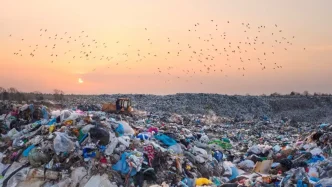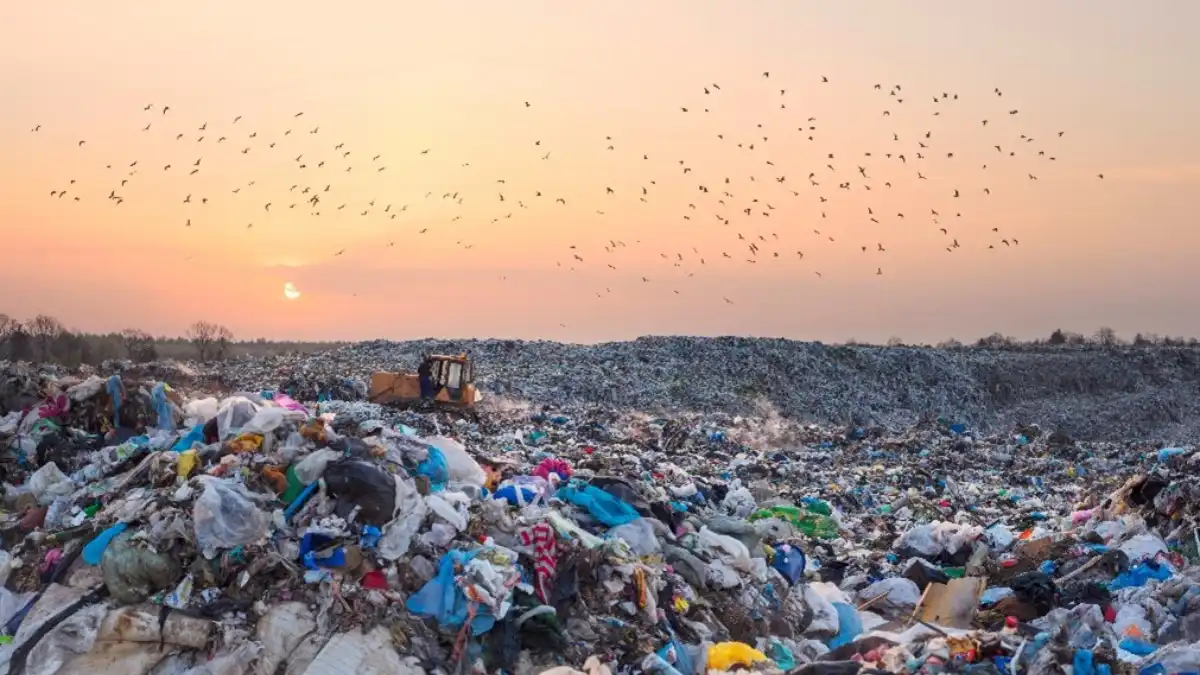In Jakarta, the battle against plastic waste is reaching a critical juncture. On May 4, 2025, women were photographed sorting plastic containers from piles of waste, a vivid illustration of a nation drowning in post-consumer trash. The Indonesian government is ramping up pressure on national and multinational companies to take accountability for the mounting plastic pollution crisis, as the country falls short of its ambitious waste reduction targets. With millions of tonnes of untreated waste clogging rivers, coastal areas, and urban centers, the stakes for environmental sustainability have never been higher.
A Roadmap Stalled by Inaction
Indonesia’s struggle with waste management is not new, but the urgency has intensified. In 2019, the Environment and Forestry Ministry introduced a ministerial regulation outlining a waste reduction roadmap under the Extended Producer Responsibility (EPR) policy. This framework mandates producers in sectors like food and beverage, manufacturing, and retail to manage the lifecycle of their products post-consumption—covering collection, transportation, recycling, and disposal. The goal is clear: a 30 percent reduction in waste generated by producers by 2029.
Yet, progress has been dismal. During a discussion hosted by Greenpeace Indonesia on July 1, 2025, Agus Rusly, the Environment Ministry’s director of waste reduction and circular economy development, revealed that only about 50 companies are complying with the regulation. “Any company generating pollution must be responsible for [waste generated],” Agus stated, signaling the government’s intent to tighten enforcement (Greenpeace Indonesia event, July 1, 2025). Without stricter oversight, however, the roadmap remains a paper promise, undermined by a lack of participation from major industry players.
The ministry is now considering elevating the roadmap to a Government Regulation (PP) or Presidential Regulation (Perpres), which would compel broader adherence across state institutions. But as Greenpeace zero waste campaigner Ibar Akbar pointed out, the Environment Ministry cannot tackle this crisis in isolation. “The initiative is there, but now we’re waiting for the political will from the industry,” he said during the same event (Greenpeace Indonesia event, July 1, 2025). Effective coordination between government agencies, regional administrations, and the private sector is essential for enforcement to succeed.
A Nation Overwhelmed by Waste
The scale of Indonesia’s waste crisis is staggering. According to the ministry’s national waste management information system (SPSN), 13 million tonnes of waste—40 percent of the total generated nationwide—went untreated last year. Plastic waste, a particularly persistent problem, fares even worse, with only 22 percent of the 10.8 million tonnes produced annually being recycled. The rest ends up in landfills, rivers, and oceans, exacerbating environmental degradation and public health risks.
A recent brand audit by the East Java-based think tank Center for Indonesian River Studies (BRUIN) paints a damning picture. Conducted between 2022 and 2024 across 92 locations in 30 provinces, the audit found that while 23 percent of plastic waste was unbranded, much of the remainder originated from major corporations such as Wings Group, Indofood, Mayora, and Unilever. Plastic sachets, often used for single-serve products, were among the most prevalent items littering riverine and coastal areas. These findings underscore the urgent need for producers to step up under the EPR framework.
Corporate Responses and Challenges
Some companies have taken steps to address their environmental footprint, though critics argue these efforts fall short of transformative change. Unilever Indonesia, for instance, has supported the development of 4,000 waste disposal sites across 13 provinces, recycling at least 39,000 tonnes of its plastic waste last year. Maya Tamimi, head of Unilever Indonesia’s environment and sustainability division, acknowledged the limitations of sachet packaging, stating that the company “could not sell sachet products forever despite it being accessible for many people” (Greenpeace Indonesia event, July 1, 2025). She emphasized ongoing efforts to develop sustainable packaging but noted that consumer insights are critical before rolling out innovations.
Similarly, Danone Indonesia’s sustainable packaging circularity senior manager, Jeffri Ricardo, advocated for industry-wide adoption of sustainable packaging to maximize impact. He called for stronger oversight of the 2019 roadmap, including tighter audit schemes and penalty mechanisms for non-compliance. “After all, sustainability cannot go without financial availability,” Jeffri remarked, highlighting the lack of clear incentives and disincentives as a barrier to corporate adherence (Greenpeace Indonesia event, July 1, 2025).
Systemic Failures and Structural Hurdles
Indonesia’s waste management challenges are deeply rooted in systemic issues. The 2008 Waste Management Law, which underpins the 2019 roadmap, mandates producers to process unrecycled materials, yet enforcement remains weak. Poor infrastructure and coordination further compound the problem. Only 10 percent of waste in Indonesia is processed, leaving vast quantities to accumulate in communities ill-equipped to manage them. Illicit waste burning, practiced by an alarming 48 percent of households, adds another layer of environmental and health hazards.
The private sector’s reluctance to fully embrace the EPR policy often stems from financial considerations. Sustainable packaging and waste management systems require significant investment, and without robust government incentives or penalties, many companies prioritize short-term profits over long-term environmental goals. This tension between economic imperatives and sustainability underscores the need for a balanced policy approach—one that rewards compliance while holding laggards accountable.
Environmental and Social Impacts
The consequences of Indonesia’s plastic waste crisis extend far beyond cluttered landscapes. Rivers and coastal areas, vital to millions of livelihoods, are choking under the weight of discarded plastics. Marine ecosystems suffer as microplastics infiltrate food chains, posing risks to biodiversity and human health. For communities near polluted sites, the daily reality includes contaminated water sources and respiratory issues from waste burning.
In urban centers like Jakarta, the visual impact is stark. Piles of unsorted waste, as seen in the May 4, 2025, image of women sorting plastics, are a common sight. These workers, often operating in informal sectors with minimal protection, bear the brunt of a system that has failed to prioritize waste management. Their labor, while essential, is a stopgap measure in the absence of comprehensive solutions.
Looking Beyond Regulation
While stronger regulations and enforcement are critical, experts argue that a cultural shift is equally important. Public awareness campaigns could encourage reduced plastic consumption and better waste segregation at the household level. Partnerships between government, industry, and civil society might also foster innovative solutions, such as community-led recycling initiatives or incentives for businesses to adopt circular economy models.
International cooperation offers another avenue for progress. Indonesia could draw lessons from countries with successful EPR policies, adapting best practices to local contexts. Financial and technical support from global environmental organizations could bolster infrastructure development, addressing the capacity gaps that hinder effective waste management.
The Road Ahead
As Indonesia grapples with its plastic waste crisis, the interplay between government policy, corporate responsibility, and public engagement will shape the outcome. The 2019 roadmap, though faltering, represents a foundation for change—if bolstered by political will and accountability mechanisms. With millions of tonnes of waste still untreated, the urgency for action is undeniable.
The question remains whether industry giants will step up to their responsibilities or continue to lag behind, leaving communities and ecosystems to bear the cost. As women in Jakarta sort through endless piles of plastic, their work serves as a poignant reminder of a crisis that demands collective resolve. The path to a cleaner, more sustainable Indonesia is fraught with challenges, but it is one the nation cannot afford to abandon.
















